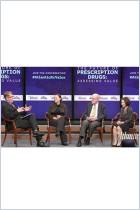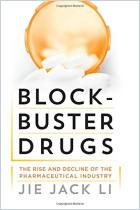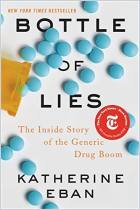
Drugs You Don't Need for Disorders You Don't Have
Inside the Pharmaceutical Industry's Campaign to Put Us All to Sleep
Recommendation
Do drug advertisements really help American consumers? Do they make people more aware of newer, better treatment options? Or are these ads just keeping pharmaceutical companies profitable as true innovation diminishes? Senior national correspondent for The Huffington Post, Jonathan Cohn, successfully addresses these questions through expert analysis of the effect of drug ads upon consumer behaviors and exploration of possible remedies to misleading drug marketing practices. getAbstract recommends Cohn’s findings to everyone interested in consumer advocacy and health care trends.
Summary
About the Author
Jonathan Cohn is a senior national correspondent for The Huffington Post. He is also the author of Sick: The Untold Story of America’s Health Care Crisis – and the People Who Pay the Price.



















Comment on this summary